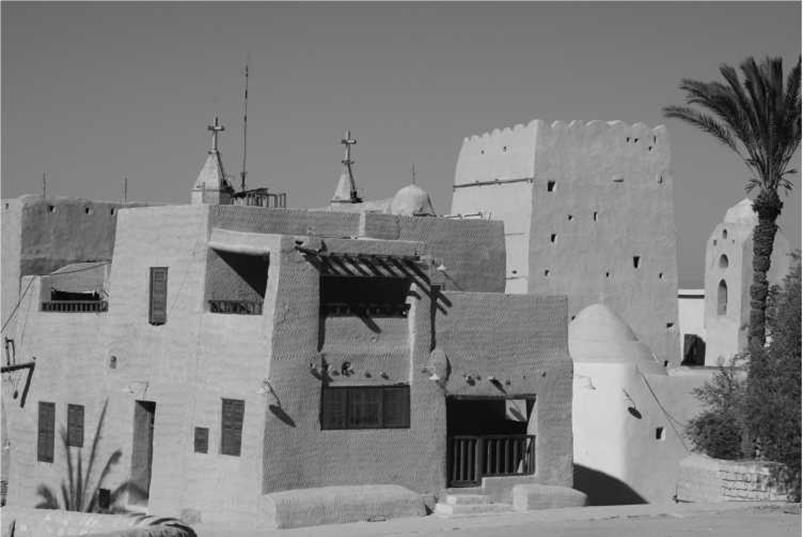Desert Fathers and Mothers
M. C. STEENBERG
The desert fathers and mothers are those ascetics of the Christian deserts that flourished between the 3rd and (at the latest) 7th centuries. Due to the simple and straightforward nature of the spirituality enshrined in their apophthegmata, or “sayings,” they are revered in wide circles for their memorable approach to living out the Christian virtues.
While the title “desert fathers/mothers” is often taken to refer solely to those ascetics who thrived in Egypt, in and around the territory of Nitria and Scetis, the extent of their “literary” geography is in fact much wider, encompassing Egypt, Syria, Palestine, and other desert regions to which monastics and ascetics fled in the early centuries. They are generally seen as beginning, at least symbolically, with St. Anthony the Great of Egypt, and span the culture of desert-dwellers through to the sacking of most Egyptian monastic communities by the Blemmyes tribes in the 6th century and the Arabs in the 7th century. Many of their number were simple ascetics of little or no education who shunned public office and reputation; but their ranks also include important dogmatic and ecclesiastical teachers whose ascetical life was shaped by the influence of desert traditions (e.g., St. John Cassian, St. Athanasius the Great, St. John Chrysostom).
The heritage of the desert fathers and mothers is preserved in written form in various collections of “sayings” compiled in Greek and Latin from about the 6th century (though our earliest collection, the Latin Sayings of the Elders (Verba Seniorum), was translated in the mid-6th century from an older Greek collection, since lost). The best known is the Alphabetical Collection, which organizes its contents along an alphabetical index of personal names; thematic and systematic collections also exist.
The nature of the sayings in these collections reflects the ascetical life of the desert fathers and mothers themselves: they tend towards simplicity, stark literality, personal conviction, and rigorous struggle. Many of the sayings are single sentences, while the longer span a few paragraphs, often recounting a specific incident in the teaching life of a father (Abba) or mother (Amma), a significant word or a memorable encounter. Many of the sayings portray encounters between novices and elders, taking the form of questions and responses – often involving a turning of the original question on its head. So, for example, the notable example of the query on prayer and the spiritual life by Abba Lot, to which Abba Joseph “replies” by being visually transfigured before him (Alphabetical Collection, Joseph of Panephysis, Saying 7).
The desert fathers and mothers are remembered for a literal approach to living out the gospel life – an approach that saw Christ’s “Go, sell all that thou hast... then come and follow me” (Mt. 19.21) as a literal injunction to be followed directly; they took the injunctions toward austerity and forceful struggle seriously and with full devotion. In the modern day they are considered a sourcebook for the spiritual life, whose legacy is – precisely due to its simplicity and purity – accessible to all.

Plate 17 Monastery of St. Antony in Egypt. Photo by John McGuckin
SEE ALSO: Asceticism; Monasticism; St. Athanasius of Alexandria (ca. 293–373); St. John Cassian (ca. 360-ca. 435); St. John
Chrysostom (349–407); St. John Klimakos (ca. 579– ca. 659); Sts. Barsanuphius and John (6th c.); Syrian Orthodox Churches
REFERENCES AND SUGGESTED READINGS
Gould, G. (1993) The Desert Fathers on Monastic Community. Oxford: Clarendon Press. Ward, B. (ed.) (1984) The Sayings of the Desert Fathers: The Alphabetical Collection. Kalamazoo: Cistercian Publications.
